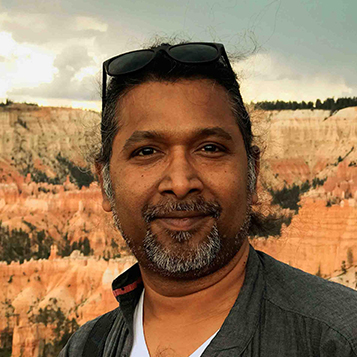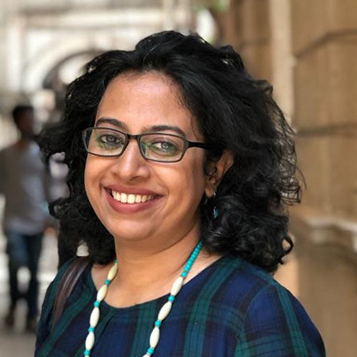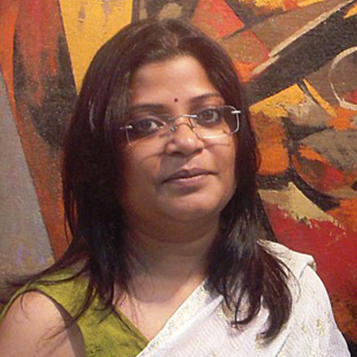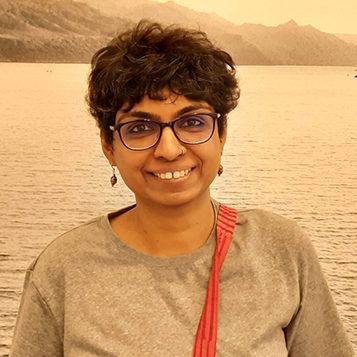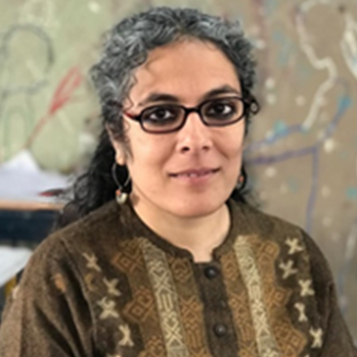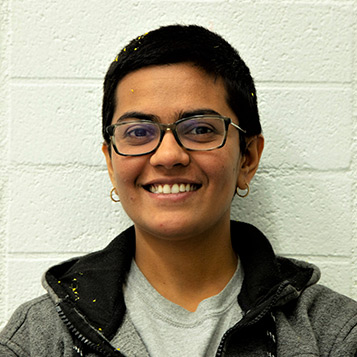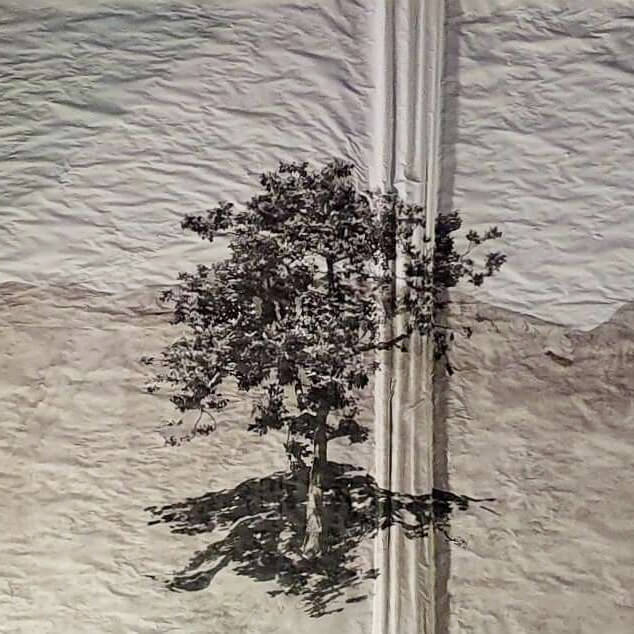
CASP formulates ideas of mutualism by promoting participatory education, affective learning, and contextual understanding. It facilitates meaningful public interactions through talks, community initiatives, and collaborative projects, fostering a relational engagement at both individual and institutional levels.
CASP engages with artists, curators, educators, architects, designers, performers, filmmakers, community organizers, social researchers, students and children. We collaborate with people in informal urban settlements, peri-urban spaces, and villages through site-responsive and site-specific projects that employ the arts for community engagement and public pedagogy.
Established in 2013, CASP is a registered non-profit Section 8 Company that works through three chapters in Navi Mumbai, Kolkata, and Delhi. Our collaboration in the Pune chapter (2016-20) closed with the advent of Covid-19.
CASP Programs
4 Chapters
125
6500
Conversations
- 20 artists’ talks | Kolkata, New Delhi and Pune
- 2 curators’ talks | Dhaka, Bangladesh; Medellin, Colombia
Community Based Projects
- 4 community-based projects | Navi Mumbai, Pune, Kolkata and New Delhi
Fieldnotes
- 3 Fieldnotes | Navi Mumbai
Participatory Workshops
- 9 workshops | Navi Mumbai, Pune, and New Delhi
- 2 workshops | Medellin, Columbia (CASP team member)
Creative Learning and Practice (CLaP)
- 51 government schools | New Delhi
Exhibitions
- 6 exhibitions | Navi Mumbai, Pune, Kolkata and New Delhi
Assemblies
- 2 assemblies | Navi Mumbai and Kolkata
Mission
Our mission is to amplify processual and participatory approaches, facilitating inclusive spaces without conceding independent agency. We offer critical and imaginative ways to address situational contexts, focusing on:
- Transdisciplinary Research
- Cooperative Toolkits
- Distributed Authorship
- Relational Thinking
- Social Discourse
Objective
Our objective is to employ the arts as a catalyst to enhance the experiences and values that people have with their social and lived contexts, enabling them to play an active role in shaping outcomes. Our methods achieve this objective by:
- Inquiry and Listening
- Access and Openness
- Process and Participation
- Collaboration and Reciprocation
- Collective Experience and Dialogues
Anupam Singh is a socially-engaged artist and educator, who employs the idea of distributed authorship in both teaching and practice, and engages with the ethics of art practice in public/citizen participation. His passion for art lies in harnessing its power to facilitate dialogue, build community, and tell stories, and he finds it most effective when it evolves through collective processes.
Currently, he is a University Fellow pursuing a PhD (2021 onwards) at the Art and Visual Culture Education Program, School of Art, University of Arizona. Prior to his MFA in Art+Social Practice, Portland State University, USA (2016-2019), he studied printmaking in India at M.S. University, Baroda (MFA, 1999), and Rabindra Bharati University, Kolkata (BVA, 1997). He has been a faculty member at Multnomah Arts Centre, Portland, and was visiting faculty at various institutions in Mumbai, including the Industrial Design Centre, IIT, National Institute of Fashion Technology, and Rachana Sansad Academy of Fine Arts and Craft, among others.
Through a range of talks and workshops, he has introduced art to children and teachers from public schools and district council schools, professionals, senior citizens and students of visual arts, social work, design, and science streams. His interests include cultural sustainability and working with rural and urban farmers on safe farming technologies. He is the Founder of the Council of Arts and Social Practice (CASP), and has exhibited his work on diverse platforms over the years.
Amrita Gupta is an art historian, researcher, writer, and editor involved in arts education and cultural management. She holds a postgraduate degree in History of Art from Kalabhavana, Vishwabharati University, Santiniketan (2002) and a graduate degree in Applied Art from Rabindra Bharati University, Kolkata (1999). She also studied Philosophy, Sociology and Education for her BA at the North Eastern Hill University, Shillong (1994). In 2002, she joined the Mohile Parikh Center (MPC), Mumbai, and became its Program Director in 2005, a responsibility she served till 2023. In this capacity, she facilitated critical thinking by curating a wide range of innovative art education programs and co-creating short art videos for diverse audiences, including children from NGOs and public schools. She remains associated as honorary program director at the MPC.
Alongside, her art writings for edited books, leading journals, magazines and periodicals have been published widely including in DAG Publications, Hakara Journal, ArtIndia, TAKE, Critical Collective and Partition Studies Quarterly. She is Alumni Fellow at the College Art Association-Getty Foundation (CAA-GETTY) International Program (2023 & 2024) and was Curatorial Advisor, Art1st First Foundation (2019-21), Research Grantee, India Foundation for the Arts (2012-15), Contributing Editor, ArtFAIR Journal (2010-2012), Fellow, ArthinkSouthAsia (2010-11) and Visiting Lecturer at the J.J. School of Arts, Mumbai (2003). Her ongoing art historical research is on the visual practices of Northeast India and her latest contribution is an essay, Looking 'East': The Art of Assam and Around, for the edited book 20th Century Indian Art (Thames & Hudson in association with Art Alive, 2022). She has a deep interest in socially engaged art and its interplay with public pedagogy, which sets out various imaginings of the nature of the public, and expanding sites of education. Amrita contributes as co-director at CASP.
Anuradha Pathak is an installation artist, graphic designer and researcher with a focus on socially engaged art practice, based in Kolkata. She completed her Bachelor of Visual Arts (BVA - Painting) in 1999 and Master of Visual Arts (MVA - Painting) from Rabindra Bharati University, Kolkata in 2001. Amongst various awards she received as an artist, the Pro Helvetia studio artist-in-residence grant in 2010 to work as an artist in Switzerland and ARThink South Asia (ATSA) fellowship in 2019-20 deserves special mention. A qualified graphic designer, she completed a certificate course in book designing from Seagull School of Publishing, Kolkata (2017) and designs books and exhibitions to bring forth such archives to a wider audience.
In the past, she has worked with Delhi Art Gallery (2004-08) as project coordinator and assistant curator, and as Triennale consultant at the Lalit Kala Akademi, New Delhi. She has contributed as editorial, administrative, and design consultant for Regional Science Association, India (2012-2019). In this capacity, she has co-organized with a committee the 12th World Congress of Regional Science Association International (2018), and its 47th, 48th & 49th International Conferences. She often writes on art and culture for different art magazines and blogs and recently contributed as author in the book ‘People called Kolkata’. Anuradha contributes as co-director at CASP.
Jinal Sangoi is an interdisciplinary artist who creates links between art, life and pedagogy. Through her performative interventions, she creates temporary spaces for healing memories of violence, exploitation, and segregation, while also using art teaching as a collaborative process to bring about alternative modes of activism and resistance. She completed her Master in Fine Arts from the California Institute of the Arts (USA) in 2018, and Bachelor of Fine Arts, Rachana Sansad Academy of Fine Arts and Craft, Mumbai in 2015, and another Master of Commerce, University of Mumbai in 2011 and Bachelor of Commerce, R. A. Podar College Commerce and Economics, Mumbai (2009).
She is an artist-fellow from the Yaddo (2020), Skowhegan School of Painting and Sculpture (2019), CalArts-REEF Residency (2018-19), and a recipient of the Gender Bender Grant from the Goethe Institut (2018), Tim Disney Prize for the Storytelling arts (2017) and Chiquita Landfill Found Art Scholarship (2017). She is the founder of beej, which aims to promote creative learning and is currently leading workshops for the LeTS (Learning Through Stories) project with the Indian Institute of Technology (IIT) Bombay. She has also developed and facilitated art projects for children in schools, communities and other organizations in India (since 2010) and in the United States, and has exhibited her work in Austria, Bangladesh, India, Romania, and the United States. Jinal contributes as co-director at CASP.
Noopur Desai is an art writer and editor writing in Marathi and English. She works as a researcher with Asia Art Archive in India and is based in New Delhi. She completed BA (History) from Fergusson College, University of Pune in 2003, MA (Art History) from M. S. University, Baroda in 2005, and a PhD at the School of Media and Cultural Studies, Tata Institute of Social Sciences, Mumbai in 2021. She received the Jamshedji Tata Fellowship from July 2014 – March 2018.
Noopur is a co-founder and co-editor of Hakara, an online bilingual journal of creative expression published in English and Marathi founded in 2017. In the past, she worked as a visiting faculty at the Faculty of Art, Design and Architecture at Vishwakarma University, Pune. Noopur received the FICA Ila Dalmia research grant for her research project, Formulating Dialogical Art: Archiving Public Art in India in 2015. In the past, she has worked as a researcher with Jackfruit Research and Design, Bangalore, and Devi Art Foundation, Delhi; and in research and programming at Vadehra Art Gallery, New Delhi, and Mohile Parikh Centre, Mumbai. Noopur contributes as co-director at CASP.
Parul Kiri Roy is an architect, academician and art historian, who primarily engages with the idea of architecture as an outcome of occupied space, of people’s needs and user experience of the built environment. She received her post graduate degree in History of Art (MFA, 2003) from Kalabhavana, Viswabharati University, Santiniketan, and her Bachelor in Architecture from the Sushant School of Art and Architecture, Gurgaon (BA, 2000). Currently, she is an Assistant Professor in the Department of Architecture, School of Planning and Architecture, New Delhi, and is pursuing her PhD from the same institution. In her teaching practice, she explores the correlation between education and all that informs the practice of art and architecture in our country.
Constantly reflecting on the classroom of architectural education, haunted strongly by the holy specter of modernism, her pedagogical practice of teaching ‘studio’ and her research involves a continuous engagement and contestation with terms such as the vernacular and the modern. She is the founder of Indes (Investigating Design), an organization that believes design to be an everyday phenomenon and engages with society by empowering people through design in various ways. She contributes to www.indiancities.com, a not-profit think tank for debate and action on the future of Indian cities, and is involved with Mehrauli Collective that seeks urban improvement of Mehrauli through citizen engagement. Parul contributes as co-director at CASP.

